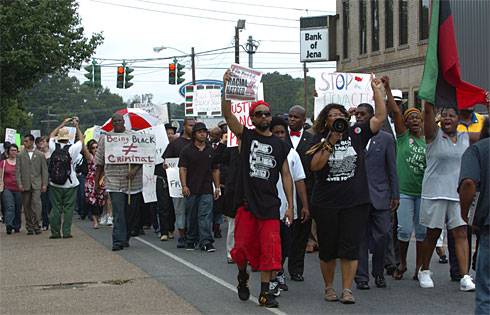
I read this comment on Facebook the other day. This is not a comment from a white male, but rather, a black male, which to me, makes the comment even more disheartening. 400 years of slavery, oppression, and racism just so we, as blacks or African Americans (whatever term you prefer) can speak about our first black president in terms of “bitch-ass nigga?”
But never mind the history lesson.
History lessons get lost in the current culture. People have a hard enough time trying to relate to people they meet on a day-to-day basis, so it would be foolish to ask people to try to relate to a person or experience from the past.
This comment is very telling about the state of black youth and where we are headed in these United States. I was born in 1980s, — way after the Civil Rights Movement (CRM) and have enjoyed a life that has been relatively free from racism.
I am part of the post-Civil Rights generation.
This generation — my generation — knows close to nothing about the essence of the Civil Rights Movement. Moreso, what we do know is about the glamorized aspect of the sit-ins and the March on Washington. We have learned certain aspects of the Movement but we are not taught that the Movement is part of us or that the Movement is still alive. For many, the Movement was just a moment in history, something you can read about on Wikipedia.
There are no national memorials about the CRM, like D-day or Pearl Harbor, or more recently, the September 11, even though countless of people died in the struggle and in the struggle preceding to the struggle. There were no medals of bravery, courage, or honor given out to celebrate the people who championed the cause. What we do have is a commercialized speech about a dream and a day to celebrate one of its many leaders. Even that day, however, has been disregarded by so many that this person’s comment doesn’t surprise me.

I believe my generation is disconnected from the CRM and the way in which it has impacted our lives. We know that racism exists in America. We know that discrimination exists, as well. But as blacks move to a “post-racial” society, being black in America is changing as well. Blacks are showing signs of separation from the “minority group.” Blacks are becoming more politically independent and are starting to form new political identities. Blacks are starting to identify themselves as Republicans, Libertarians, Socialists, and the like, and are branching to every spectrum of the political rainbow. This political change adds to the diversity of the political realm, but still, it does not change racism or race in the U.S.
The idea of the post-racial society is a myth wrapped up in a pretty bow, given to people who feel a need to establish an identity outside the norm. That “bitch-ass nigga Obama” is not just a phrase coming from some ignorant back-woods hillbilly. No. It is coming from a college-educated privileged black male who chooses to disassociate himself with the majority of blacks politically and insert his own radical critique of the Obama administration. By using this term “nigga,” he is trying to insert race egregiously to show that he doesn’t care about the race of the president, but rather his policies. What this student fails to understand is that by him making use of racial epithets, he is hurting the cause to move toward that idea of a “post-racial” society. To put it clearly, he comes across as a racist against blacks, despite the fact that he is, in fact, black.
What concerns me is this: will the new black generation take civil rights as important as the last? Are we, as blacks, going out of the political norm just to differentiate ourselves from being stereotyped as black Democrats? The other day I was asked, “how do you describe your political views?” I responded, “Socialist to borderline Anarchist”. However, I am not for sure if I really believe that or if I am just saying that to be “cool.” I am sure that my generation is less aware of the struggles that occurred to give us the right to be who we are. Although it is important to establish ones identity, it is equally important to remember one’s history, which is not to say remember black history, but American history.
The Civil Rights Movement was an American struggle. We should use our common heritage with our separate political identities to build strong communities. We should not use our political identities just too sharply criticize. Though we might be Republican, Democrat, Socialist, Libertarian, or Anarchist, we are black as well and we cannot create a “post-racial” society by sacrificing one identity for the other. Instead, we have to embrace both without letting either define or limit us as a community which allows us to grow. In an age where we as blacks have more freedom, we must consciously put our political energy where it will do the most justice, for all.








